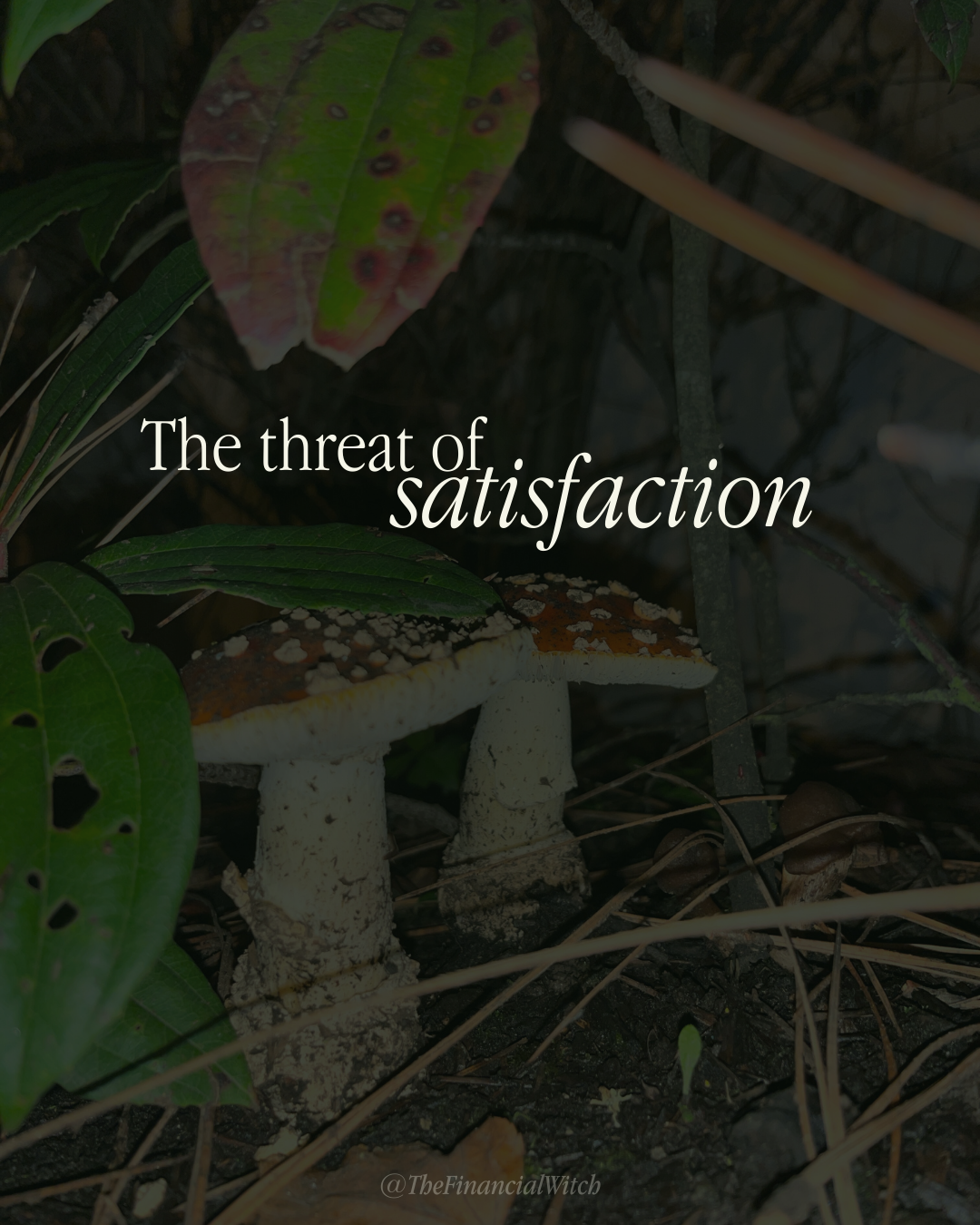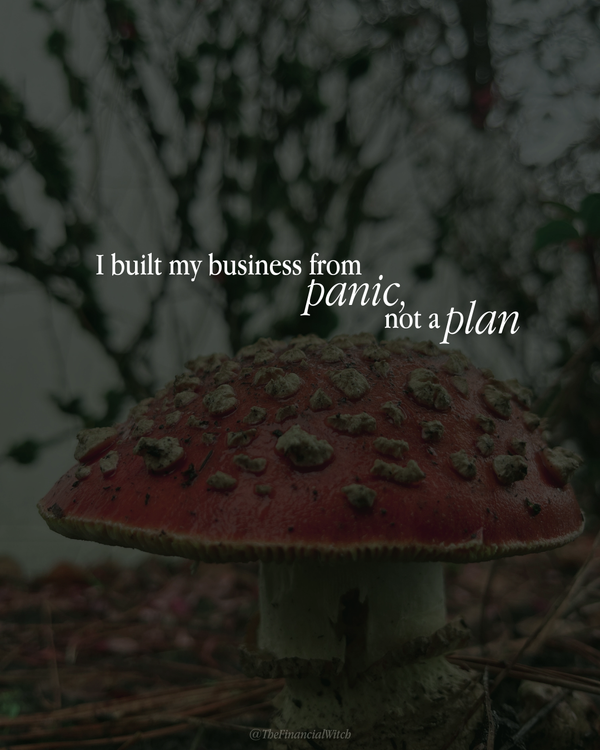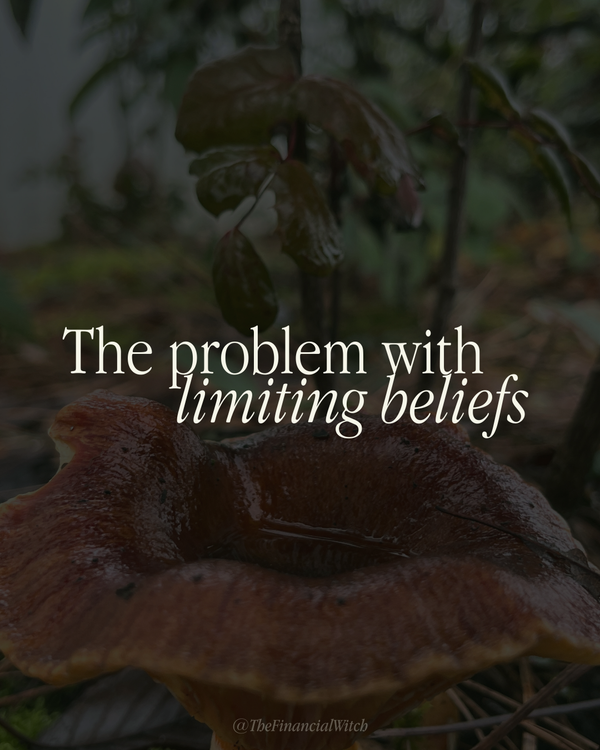The threat of satisfaction
It should never be this hard to have what you need.

What does it mean to be satisfied? To have enough, to experience the sensation of having your need(s) fulfilled. Capitalism functions on the feeling of dissatisfaction—never having enough. You are meant to keep buying things continuously. You are meant to consume. Economic growth, powered by consumption, is only ever considered a good and positive thing. Your satisfaction, then—the sensation that your needs are fulfilled and you have enough—is a threat to the structure and values of capitalism.
“They’re never satisfied” is considered a compliment in certain settings—ones which typically include business deals and negotiations and other corporate speak, like things we blithely refer to as “hostile takeovers”. But most of us aren’t living in that world. If you’re in the “bottom 60%” of Americans right now, for example, you aren’t being lauded for your endless drive to consume entire economies. In fact, you’re being told to be satisfied with less, without having your needs fulfilled. The endless gaslighting is a feature of capitalism, not just a function.
This parable has been coming up for me again and again lately, for reasons that will become obvious very soon:
There was once a businessman who was sitting by the beach in a small Brazilian village. As he sat, he saw a Brazilian fisherman rowing a small boat towards the shore having caught quite few big fish. The businessman was impressed and asked the fisherman, “How long does it take you to catch so many fish?” The fisherman replied, “Oh, just a short while.” “Then why don’t you stay longer at sea and catch even more?” The businessman was astonished. “This is enough to feed my whole family,” the fisherman said. The businessman then asked, “So, what do you do for the rest of the day?” The fisherman replied, “Well, I usually wake up early in the morning, go out to sea and catch a few fish, then go back and play with my kids. In the afternoon, I take a nap with my wife, and evening comes, I join my buddies in the village for a drink — we play guitar, sing and dance throughout the night.”
The businessman offered a suggestion to the fisherman. “I am a PhD in business management. I could help you to become a more successful person. From now on, you should spend more time at sea and try to catch as many fish as possible. When you have saved enough money, you could buy a bigger boat and catch even more fish. Soon you will be able to afford to buy more boats, set up your own company, your own production plant for canned food and distribution network. By then, you will have moved out of this village and to Sao Paulo, where you can set up HQ to manage your other branches.”
The fisherman continues, “And after that?” The businessman laughs heartily, “After that, you can live like a king in your own house, and when the time is right, you can go public and float your shares in the Stock Exchange, and you will be rich.” The fisherman asks, “And after that?” The businessman says, “After that, you can finally retire, you can move to a house by the fishing village, wake up early in the morning, catch a few fish, then return home to play with kids, have a nice afternoon nap with your wife, and when evening comes, you can join your buddies for a drink, play the guitar, sing and dance throughout the night!” The fisherman was puzzled, “Isn’t that what I am doing now?”
When you experience dissatisfaction—the gap between having a need and meeting that need—there are only two methods which capitalism approves of you using to ease the sensation of dissatisfaction: produce or consume, until you have produced or consumed enough to satisfy capitalism’s needs. Then you can meet your own needs, once you’re rewarded with capital.
By no means are you to reorient your idea of “enough” away from capitalist expectations of growth and progress, however. That is strictly forbidden thinking. If we all become satisfied with simply having enough, and stop treating the urge to hoard resource as a virtue or a skill, then the rich are no longer deified. The hustle is no longer glorified. To be advertised to feels more and more futile with each passing moment of satisfaction… and capitalism simply cannot have you feeling too satisfied to be advertised to.
But again, most people aren’t living in a world where we need to learn to be satisfied with enough. The literal majority of people are being forced to make do with less than enough, constantly. This is being normalized by the small minority who profit by extracting time, labor, energy, and resource from the majority.
The seesaw: for everyone to have enough, some people need to learn to be satisfied with enough. Those who aren’t satisfied with enough create and maintain the conditions that cause the majority of people to live with less than enough.
All of my adult life, I have dreamed of achieving enough. I have tasted it, in moments and brief chapters, but to this day it remains an ideal—something I strive for. As I watch the goalposts for enough shift with each passing economic recession and fascist enshittification of services & systems, I sink further into the earth and down into the mycelial network. The rugged individualist within me becomes weaker and less powerful as I root deeper into interdependence. I see all the narratives laid out that tell me how my failure to cultivate enough in my life is a personal failure rather than the culmination of a series of moments when my needs were not met.
Astrologically, I live here too. Austin Coppock writes, in his description of the first decan of Capricorn where I happen to have a large stellium in my birth chart, “The first face of Capricorn entails the descent of the spirit into the body of the world itself. One sinks into the bones of the world, deeper into materiality than at any point previous[…] As consciousness descends to Earth, its details become clear, the advantages and disadvantages of its many realms obvious.” From my perspective down here under the dirt, the advantages and disadvantages of the realm of capitalism are mainly centered upon punishment and reward.
I hear the sensations of dissatisfaction and failure echoing from the mouths of other business owners like myself, who are often doing it by themselves, with more than just their own mouths to feed, and often working within the limitations placed upon them by neurodivergence and systemic oppression’s many forms—racism, sexism, transphobia, ableism, xenophobia, etc. The inability to even grace the edges of enough is perceived as—and perhaps more importantly, feels like a personal failing. Even intelligent, world-aware folks who understand how structural imbalances trickle down into lived reality are experiencing that systemic shame. It’s different from interpersonal shame because it isn’t necessarily linked to something you did or didn’t do, but rather to how well you comply or don’t comply with the rules of the system you live within. Reward and punishment are what follow.
Disabled folks, visibly queer and trans folks, or anyone who’s not white automatically fall into the “does not comply” category, but capitalism provides us methods for compliance: produce or consume. Some folks in these “othered” demographics find ways to comply with capitalism and be rewarded with capital. That doesn’t mean they aren’t experiencing systemic shame—they are responding to it.
People who cannot produce or consume enough to satisfy capitalism’s expectations respond to systemic shame too, just differently: by internalizing the inequities of the system and placing the blame and the responsibility entirely on the individual. Whether or not you comply with capitalism—and there’s no morality to this choice, if you do get to make the choice—you will experience systemic shame, because shame on this level is less about keeping you a part of the tribe and more about keeping you in line with what the system wants--AKA reward and punishment.
So of course you’re gonna feel like a failure for not having enough, when the system you live within expects you to produce and consume enough as an isolated, optimized, individual unit. Of course you’re gonna feel like shit when you finally experience having enough, because you realize just how little a person truly needs to feel like they have enough, and the heartbreaking immensity of the greed that spurs on the extraction of enough from those who have never had it to those who could never be satisfied with it.
The word “subsistence” has a negative connotation attached to it, which should come as very little surprise in the late stages of capitalism. The images typically conjured by “subsistence” are austere and center on living incredibly minimally, and typically due to circumstances outside of one’s individual control, such as war or crop famine. But in a vacuum, the word “subsist” has to do with continuing to exist. Subsistence is the act of remaining alive, and acquiring the resources necessary for life to continue on.
When you remove airs of austerity from subsistence, it blossoms into that gorgeous idea, enough. And while most people may not enthusiastically say they want to live a “subsistence lifestyle,” an increasing percentage of capitalism-critical people are embracing the concept of enough. It’s disguised in trends like “slow living,” “soft girl life,” “cottagecore,” and of course, trad wives. Yes, even that right-wing pipeline TikToker in her peasant dress is selling the idea of having enough. She’s also afraid of not having her needs fulfilled. She also experiences systemic shame and fears what would happen should she fail to meet capitalism’s expectations.
Just like there is no shame in failing capitalism’s expectations, there’s no shame in desiring enough. There’s never anything shameful about wanting to have your needs met. Especially if you’re someone like me who has rarely encountered having enough, sometimes striving for enough can begin to feel shameful, due to all the societal narratives and structural limitations surrounding that strife. But we can’t all be the banker from the parable; the earth could not support it. What the earth can support, however, is more people like the fisherman.
In pursuit of enough, and in honor of the spirit of asking for help, this week’s essay comes with an urgent crowdfunding ask for myself and my family. You can read all the details and learn how to help here. Thank you for your ongoing presence and support.
Thank you for reading!
Your ongoing support makes it possible to continue writing, podcasting, & offering more sliding scale and no-cost offerings in the future. To become a Cosmic Co-Op member, click here.
Share this publication: like, comment, reply to this email, or link me on your social media! I love to receive thoughtful feedback and continue conversations beyond this platform--especially in our community Discord server.
If you would like to pay for a subscription, but don’t want to do so through Ghost, you can pay via my Venmo. If you’d like a paid subscription, but can’t afford it, please reach out to me and I’ll add you—no questions asked.




